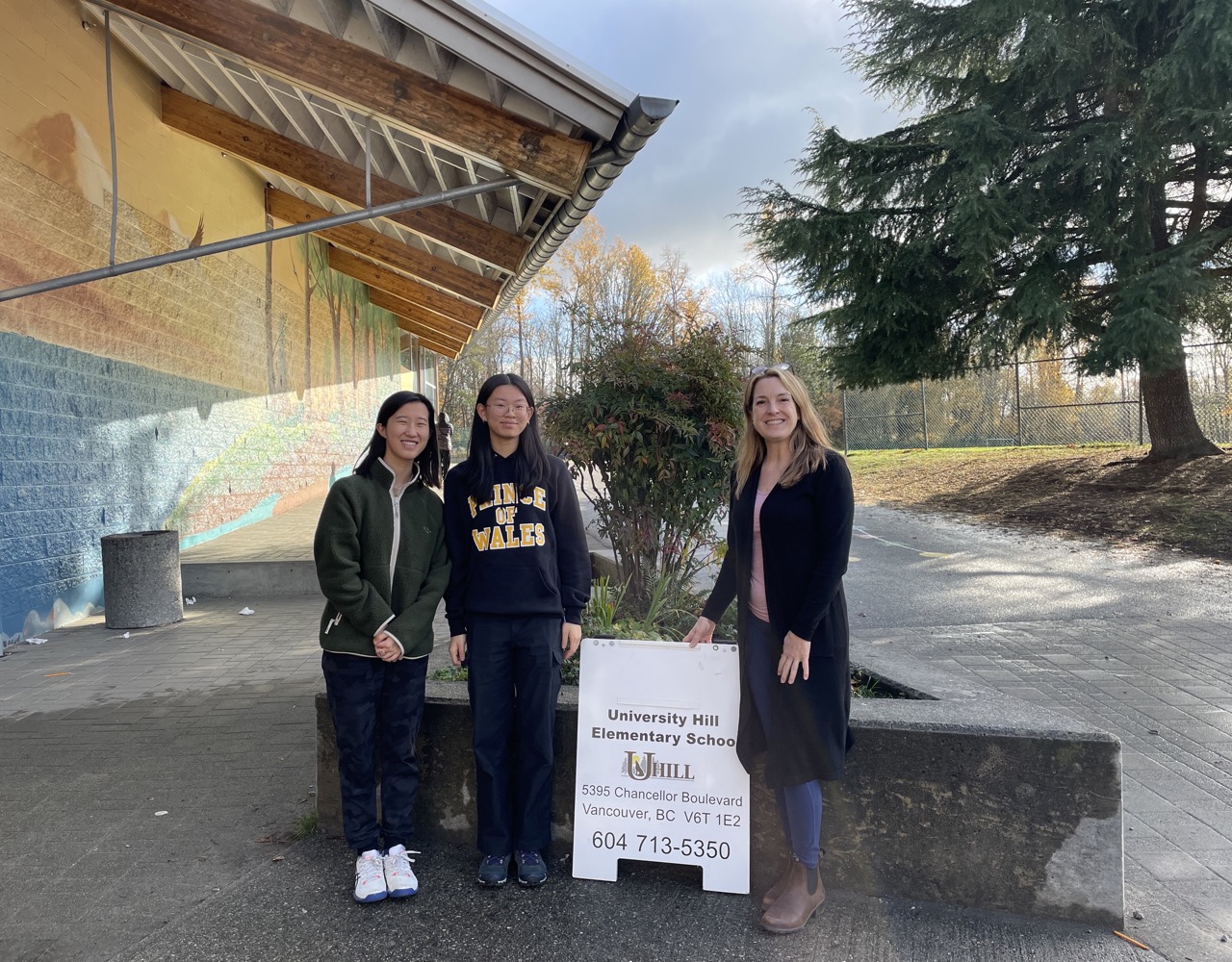American Sign Language workshops (ASL) are being given to elementary students in the university neighborhoods in an effort to address the lack of ASL education in local schools.
ASL is a visual language mainly used by those who are deaf and hard of hearing. The need for ASL is universal and learning it is a simple way to make an environment more inclusive. This is especially important in elementary schools, where the formative years of youth allow for better integration of new topics.
As a part of our social action project, three students from Prince of Wales Mini School – including myself and my colleagues Ann Wang and Caroline Anson – have created a plan to expand the accessibility of ASL education by developing information packages, ASL-integrated curricula, and making presentations to various elementary schools.
Thus far, we’ve spoken to multiple classes at University Hill Elementary School and many Girl Guide groups.
Grade 4 teacher Carolyn Andres finds it especially impactful to introduce ASL to young students, saying “I had a student in my class last year who was deaf and had limited expressive and receptive language. It’s great to have another language that can be used with children that have special needs.”
The workshops are designed to present the basics of ASL in an interactive and engaging manner, and foster inclusivity among students.
A couple of upcoming workshops will include Grades 6/7 classes and a Grade 3 class at UHill elementary school. We also plan on contacting other elementary schools such as Norma Rose Point.
“We want to teach these students enough sign language to get by, and enough for them to use if they ever need to,” says Caroline Anson, one of the social action project members.
Besides delivering workshops, the ultimate goal of the project is to integrate ASL-focused curricula into the Vancouver School Board. For example, younger children can learn the ASL alphabet alongside the written alphabet for a kinesthetic approach to education. Building this curricula would allow children in the neighborhood to acquire the benefits of learning a new language with less complication. With time, the integration of ASL in learning will hopefully spread across Vancouver.
Overall, the aims of our project can be summarized with its mission statement: With the understanding that there is a systematic lack of sign language education in elementary school curricula, we are committed to expanding the accessibility of ASL education through the development of information packages, ASL-integrated curricula, speaking to classes, and through ‘sign of the week’ initiatives.
ANNE ZHANG IS A GRADE 11 STUDENT AT PRINCE OF WALES MINI SCHOOL AND LIVES IN HAMPTON PLACE.
